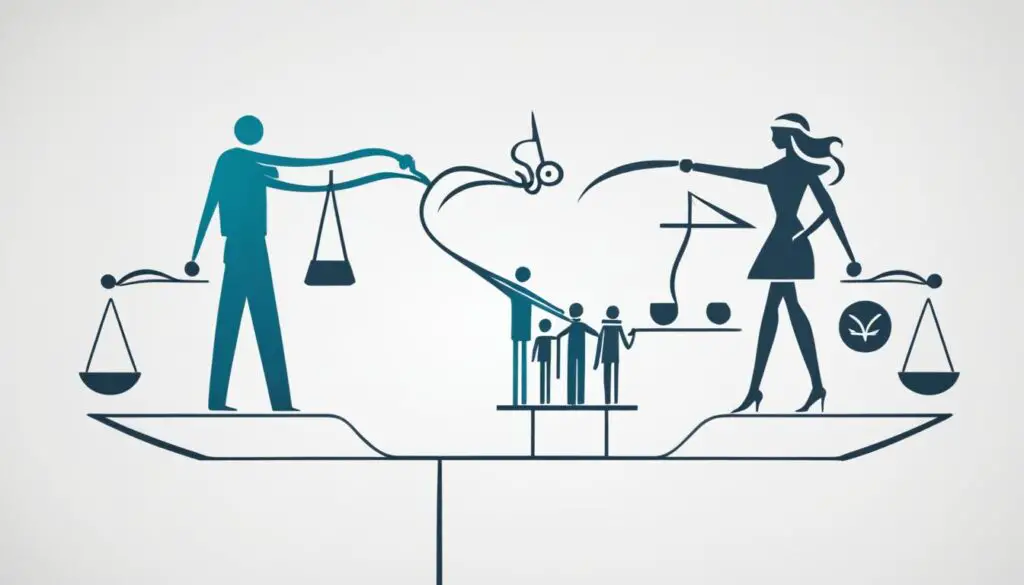
Sustainable Living Principles from the Bible
The Bible provides guidance on how to live a sustainable lifestyle that promotes environmental stewardship. These principles can help individuals make eco-friendly choices and take care of Earth’s resources for future generations. By incorporating these biblical principles into our daily lives, we can contribute to a more sustainable and harmonious world.
Sustainability is a concept that has gained increasing importance in our modern society. As we become more aware of the impact our actions have on the planet, many people are looking for ways to live more eco-friendly lives. While there are numerous approaches to sustainability, one source of wisdom that often goes overlooked is the Bible.
The Bible, with its timeless teachings and principles, offers valuable insights on how we can be responsible stewards of the Earth’s resources. From caring for God’s creation to promoting justice and equality, the Bible provides a holistic framework for sustainable living.
Key Takeaways:
- Biblical principles guide us in making eco-friendly choices.
- The Bible teaches us to be good stewards of the environment.
- Living simply and avoiding excess reduces our ecological footprint.
- Responsible stewardship involves wise use of resources and sustainable agriculture.
- Promoting justice and equality is crucial for a sustainable future.
Care for God’s Creation
The Bible teaches us to be good stewards of God’s creation. We have a responsibility to take care of the environment and use its resources responsibly. By adopting sustainable practices, we can fulfill our role as caretakers of the Earth and contribute to a healthier planet for future generations.
Environmental stewardship is a concept rooted in the belief that we are entrusted with the care of the Earth. It emphasizes the importance of preserving the natural world and its resources for the well-being of all living creatures. Our actions, both as individuals and as a society, have a profound impact on the Earth and its ecosystems.
Creation care is another principle found in the Bible. It reflects the idea that God created the Earth and declared it good. Therefore, we should treat the natural world with respect and gratitude. This means appreciating the beauty of nature, protecting biodiversity, and conserving resources.
To practice care for God’s creation, we can incorporate sustainable practices into our daily lives:
- Reduce waste: Minimize our consumption, recycle and compost, and choose products with minimal packaging.
- Conserve energy: Use energy-efficient appliances and lighting, turn off unnecessary lights and electronics, and reduce water usage.
- Promote biodiversity: Support efforts to protect and restore ecosystems, plant native species, and avoid the use of harmful pesticides.
By embracing these sustainable practices, we demonstrate our commitment to environmental stewardship and creation care. We recognize that our actions have consequences and that every choice we make can contribute to a more sustainable future.
Quote:
“The Earth is the Lord’s, and everything in it, the world, and all who live in it” – Psalm 24:1
Live Simply and Avoid Excess
The Bible teaches us the importance of embracing a minimalist lifestyle and avoiding excessive consumerism. By living simply and reducing our consumption, we can minimize our impact on the environment and promote sustainable living.
Embracing minimalism allows us to focus on what truly matters, finding contentment in the essentials rather than constantly seeking more. By being mindful of our purchases and avoiding unnecessary accumulation, we can reduce waste and contribute to a more sustainable future.
The Benefits of Minimalism
Minimalism offers numerous benefits, both for our well-being and the environment. By simplifying our lives and decluttering our spaces, we can experience a sense of freedom and clarity. Letting go of excess possessions helps us prioritize what truly brings us joy and fulfillment.
In addition to the personal benefits, minimalism also aligns with environmental sustainability. By reducing our consumption, we minimize the demand for resources and energy-intensive production processes. This, in turn, reduces pollution and lowers our carbon footprint.
“Simplicity is the ultimate sophistication.” – Leonardo da Vinci
These words of wisdom from Leonardo da Vinci encapsulate the elegance and power of simplicity. By focusing on what truly matters and embracing a minimalist mindset, we can find beauty and fulfillment in the simple things in life.
Practical Steps for Embracing Minimalism
Here are some practical steps we can take to embrace minimalism and reduce consumerism:
- Assess your belongings: Take inventory of your possessions and declutter your living space. Only keep what you truly need and value.
- Mindful purchasing: Before making a purchase, consider whether you truly need the item and its impact on the environment. Opt for high-quality, long-lasting products over disposable ones.
- Reduce waste: Embrace recycling and composting, and strive to minimize your overall waste production.
- Simplify your wardrobe: Adopt a capsule wardrobe approach, focusing on versatile, timeless pieces that can be mixed and matched.
- Consume consciously: Support eco-friendly and sustainable brands that align with your values. Consider the social and environmental impact of the products you choose.
By incorporating these practices into our lives, we can embrace minimalism, reduce consumerism, and contribute to a more sustainable world.
Practice Responsible Stewardship
In order to ensure the long-term viability of our Earth’s resources, it is essential to practice responsible stewardship. By using our resources wisely and embracing sustainable agriculture, we can contribute to a more sustainable future.
One of the key components of responsible resource management is adopting organic farming practices. Organic farming eliminates the use of synthetic pesticides and fertilizers, minimizing the negative impact on the environment. It promotes healthier ecosystems, protects soil quality, and reduces water pollution.
Another important aspect of responsible stewardship is water conservation. By implementing efficient irrigation methods, such as drip irrigation or rainwater harvesting, we can reduce water wastage and preserve this precious resource for future generations.
In addition, responsible land management plays a crucial role in sustainable agriculture. Implementing techniques like crop rotation, cover cropping, and integrated pest management can help maintain soil fertility, prevent erosion, and minimize the need for harmful chemical interventions.
By practicing responsible stewardship, we can ensure that our resources are used wisely and sustainably. This not only benefits the health of our environment but also contributes to the long-term well-being of our communities and future generations.

| Benefits of responsible stewardship | Examples of sustainable agriculture practices |
|---|---|
| Preservation of natural resources | Organic farming |
| Minimization of negative environmental impact | Water conservation |
| Promotion of soil health | Responsible land management |
| Reduced reliance on synthetic pesticides and fertilizers | Crop rotation |
| Protection of biodiversity | Cover cropping |
Promote Justice and Equality
In our pursuit of sustainable living, it is imperative that we uphold the principles of justice and equality. The Bible calls us to advocate for social justice and fairness in all aspects of life, including environmental stewardship. We must recognize that certain communities, especially marginalized groups, bear a disproportionate burden when it comes to environmental issues.
By prioritizing social justice in our environmental efforts, we can ensure that all individuals, regardless of their background or socioeconomic status, have equal access to clean air, water, and a healthy environment. This requires actively engaging with environmental policies and initiatives that address the needs and concerns of these marginalized communities.
“We must fight for environmental justice not only because it is the right thing to do, but because caring for the marginalized is at the core of our belief system.”
Only by addressing the systemic inequalities that exist within our society can we truly achieve sustainability for all. This means amplifying the voices of those who have been silenced, advocating for just policies that protect the rights of all individuals, and working towards a more inclusive and equitable future.
Let us remember that social justice and environmental justice are intricately connected. By striving for justice and equality, we not only uplift and empower marginalized communities, but also create a foundation for a more sustainable and harmonious world.
Promoting Justice and Equality Tips
- Support organizations and initiatives that promote social and environmental justice.
- Educate yourself and others about the intersectionality of social justice and environmentalism.
- Advocate for equitable policies that consider the needs of marginalized communities.
- Listen to and amplify the voices of marginalized individuals and communities.
- Encourage diversity and inclusion in environmental organizations and decision-making processes.
- Take action against environmental injustices in your local community.

Conclusion
By incorporating biblical principles into our daily lives, we can make eco-friendly choices and practice responsible stewardship of Earth’s resources. The Bible teaches us to prioritize caring for God’s creation, living simply, practicing responsible resource management, and promoting justice and equality.
Caring for God’s creation involves recognizing the importance of environmental stewardship and taking actions to protect and preserve our planet. It includes adopting sustainable practices such as reducing waste, conserving energy, and promoting biodiversity. When we embrace these principles, we honor God’s creation and contribute to a more sustainable world.
Living simply and avoiding excess aligns with biblical teachings on minimalism and contentment. By reducing consumerism and finding fulfillment in what we have, we can reduce our ecological footprint and live more sustainably. This includes being mindful of our purchasing habits and embracing a “less is more” mentality.
Practicing responsible stewardship means managing Earth’s resources wisely. This includes adopting sustainable agriculture practices, practicing water conservation, and embracing responsible land management. By implementing these practices, we can ensure the long-term viability of our natural resources and promote sustainable living.
Promoting justice and equality in environmental stewardship means advocating for policies that benefit all people, especially marginalized communities disproportionately affected by environmental issues. Through our actions, we can work towards a more just and equitable society where everyone has access to clean air, water, and a healthy environment.
Incorporating these biblical principles into our daily lives can guide us in making eco-friendly choices and practicing responsible stewardship of Earth’s resources. Let us embrace these principles and work towards a future where our actions align with our values and respect the Earth that has been entrusted to us.
FAQ
What are some biblical principles for sustainable living?
The Bible teaches us to be good stewards of God’s creation and encourages us to live simple lives, practice responsible resource management, and promote justice and equality in all aspects of life, including environmental stewardship.
How can I make eco-friendly choices?
By incorporating biblical principles into your daily life, you can make eco-friendly choices such as reducing waste, conserving energy, promoting biodiversity, adopting sustainable practices, and advocating for environmental policies that benefit all people.
What is the importance of environmental stewardship?
Environmental stewardship is important because it allows us to take care of the Earth’s resources responsibly, ensuring their long-term viability for future generations. It is our role as caretakers of the Earth to use its resources wisely and practice sustainable agriculture and land management.
How can I live simply and avoid excess?
Living simply and avoiding excess means embracing minimalism, reducing consumption, being mindful of purchasing habits, and finding contentment in what you have rather than constantly seeking more. This mindset helps reduce your ecological footprint and promotes sustainable living.
What is responsible stewardship?
Responsible stewardship involves using resources wisely, practicing sustainable agriculture, adopting practices such as organic farming and water conservation, and practicing responsible land management. These actions contribute to the long-term viability of our natural resources and promote sustainable living.
Why is it important to promote justice and equality in environmental stewardship?
Promoting justice and equality in environmental stewardship is important because it ensures that all people, including marginalized communities disproportionately affected by environmental issues, have access to a clean and healthy environment. Working towards a more just and equitable society is essential in creating a sustainable future for all.
How can I contribute to a more sustainable world?
By incorporating biblical principles into your daily life, such as caring for God’s creation, living simply, practicing responsible resource management, and promoting justice and equality, you can contribute to a more sustainable world. Embrace these principles and work towards aligning your actions with your values to respect the Earth that has been entrusted to us.
